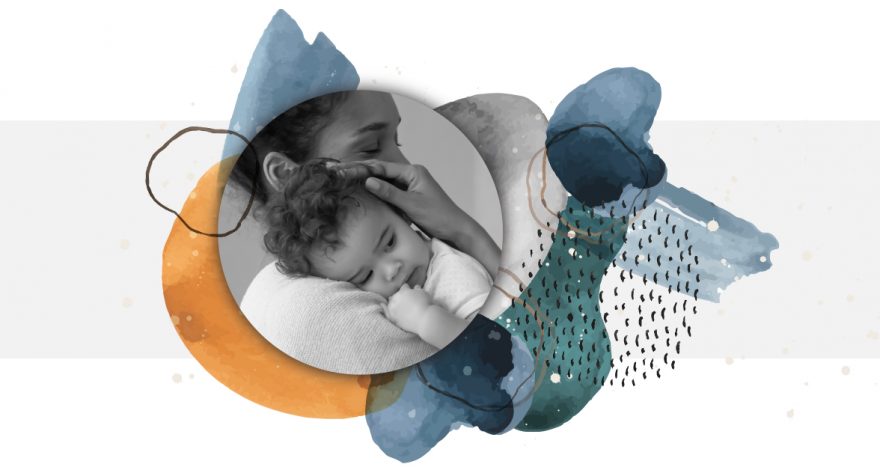A child’s early environment can alter his or her genes and development, with consequences that can last into adulthood.
When it comes to children, the age-old debate “nature vs. nurture” has been put to rest. As biologists see it, when it comes to genetics or environment in shaping our brains and health, DNA and genes have been accorded far more power than they deserve.
Genes are not at the command post. Rather, they are taking part in an elaborate dance with a person’s environment. Or as Dr. David S. Moore, author of “The Developing Genome,” told the New York Times, “the outside finds its way in and the inside responds.” Our experiences get under our skin and influence the activity of our genes.
“The outside finds its way in and the inside responds”; our experiences influence the activity of our genes.
For children, prenatal care, environmental toxins, or parenting styles can all be factors in this “epigenetic” process–a process that starts early and lasts a long time. Children who were in utero during the Dutch Hunger Winter Famine of 1944-1945 were more likely to develop heart disease, schizophrenia, and Type 2 diabetes later in life because the epigenetic process triggered by the mothers’ poor diets altered the babies’ genes.
Similarly, the body doesn’t forget chronic, serious stress in early childhood. These “biological memories” can increase the risk not only for poor physical and mental health outcomes but also for impairments in future learning capacity and behavior.
Granted, stress is not always bad–a burst of stress here and there can actually build resilience in a person’s body. But prolonged, chronic, severe stress is like an overloaded circuit. The brain learns to expect adversity and develops a shorter fuse in responding. Chronic stress can also destroy the synapses between neurons in the brain that are necessary for learning. The results are visible even in infants, Dr. Charles Nelson, professor of pediatrics and neuroscience at Harvard Medical School, has found.
So what to do?
One way to alleviate the chronic stress is to alleviate the source of that stress: poverty. Poverty is a key reason for the huge gaps in longevity by income or the higher rates of chronic disease among the poor. Poverty is the root cause of the stress and strain in daily lives. It limits choice, it determines where you live, which schools you attend, whether you will live near a toxic dump. It determines whether you have a grocery store with fresh vegetables nearby and if you can afford to buy them. It determines your access to high-quality health care. All that translates into life expectancy that is 20 years shorter in poor ZIP codes than wealthier. Poverty, in other words, is the biggest social determinant of health.
Poverty is the biggest social determinant of health.
The U.S. tends to want to mitigate the problems caused by poverty with after-the-fact programs or more indirect means like improving education. All are critical, but one of the simplest solutions many would argue is to guarantee a basic income–a floor below no family in America should fall below. Several guaranteed income programs are doing just that here and abroad.
Babies First Years is testing that very idea. The researchers are giving mothers with newborns $300 a month to use as they need and monitoring their babies’ brain development starting at birth. At birth and again at at 4, they put a tiny, noninvasive cap on the baby’s head and measure his or her brain waves via EEG. They then compare the results to a control group who did not receive the extra money. They took the first reading at birth and are two years into the study.
The experiment is groundbreaking in many ways, and will put to rest the question of whether poverty harms kids’ brains.
“Plenty will say that it’s not poverty but other things related to poverty that are affecting children’s outcomes. But we’re using a scientifically valid approach to find out.”
“The work really moves past correlation and into causation,” says Kimberly Noble, the lead neuroscientist on the study. “Plenty will say that it’s not poverty but other things related to poverty that are affecting children’s outcomes. But we’re using a scientifically valid approach to find out. It’s the only real way you can say for sure that money makes a difference.”
They will also dissect how the extra money influences outcomes. Does the money lower parents’ stress so they can parent in more warm and nurturing ways, which research shows benefits children? Or does having more income allow families to invest in their children through toys, books, higher-quality child care and so forth?
“We’re measuring both pathways very carefully,” said Noble.
The study is so rigorous–and the decades of other research so convincing–that Family Health Project is modeling its program after Babies First Years by giving low-income mothers in Lynn, Mass., $400 a month to parent as they see fit. We believe wholeheartedly that the extra money will help these children start with a healthy foundation. With time and more generous funding, we hope to jumpstart the lives of many more children.
